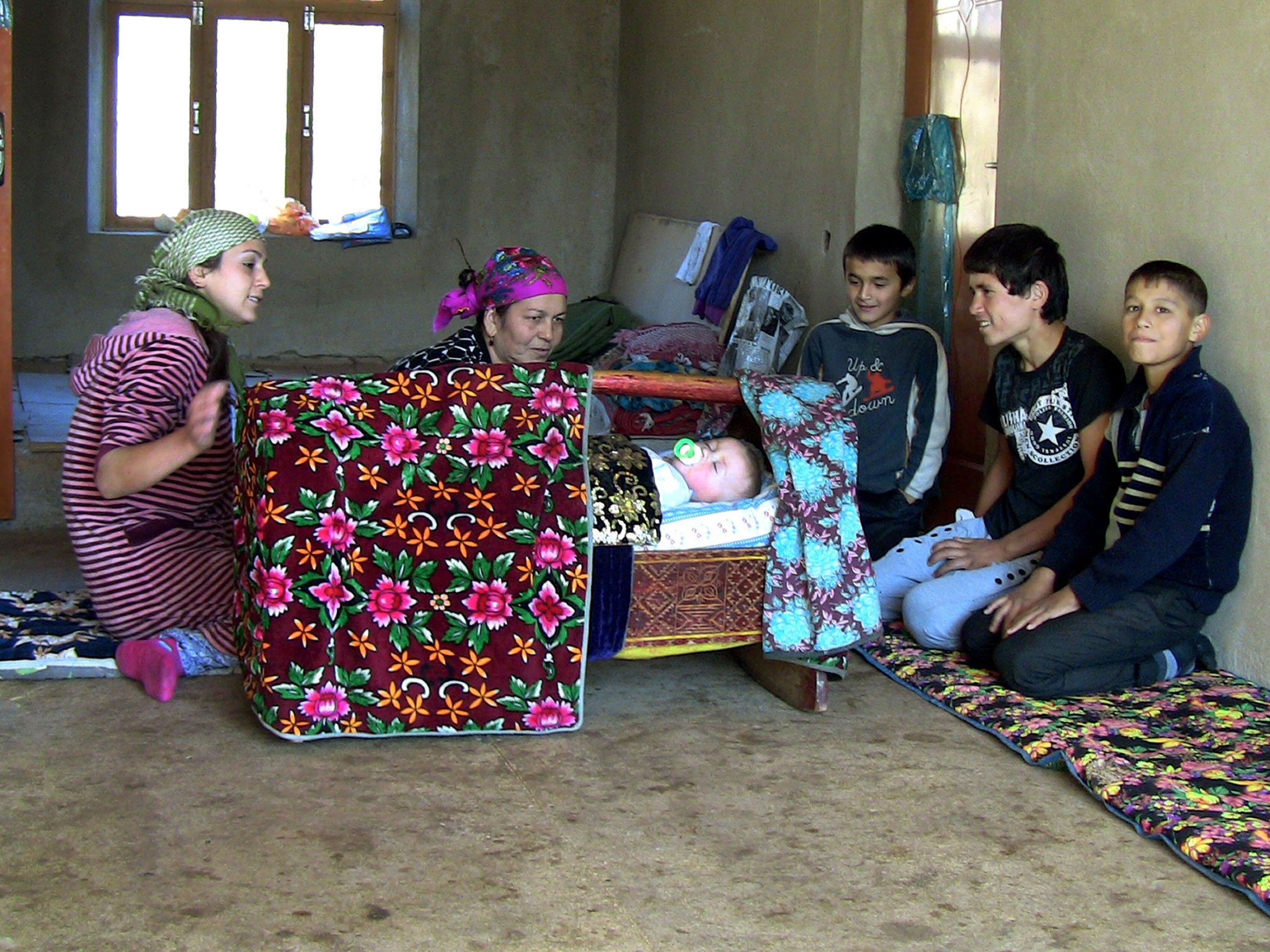Your support helps us to tell the story
From reproductive rights to climate change to Big Tech, The Independent is on the ground when the story is developing. Whether it's investigating the financials of Elon Musk's pro-Trump PAC or producing our latest documentary, 'The A Word', which shines a light on the American women fighting for reproductive rights, we know how important it is to parse out the facts from the messaging.
At such a critical moment in US history, we need reporters on the ground. Your donation allows us to keep sending journalists to speak to both sides of the story.
The Independent is trusted by Americans across the entire political spectrum. And unlike many other quality news outlets, we choose not to lock Americans out of our reporting and analysis with paywalls. We believe quality journalism should be available to everyone, paid for by those who can afford it.
Your support makes all the difference.Women in the small Central Asian country of Tajikistan are asking Russia to deport their rogue husbands.
Groups of wives have appealed to the Tajikistan authorities and to Russia’s Federal Migration Service seeking to the return of their husbands, brothers and sons, after the men travelled to Russia to find work but failed to keep in touch or send money home as they had promised.
According to the World Bank, 47 per cent of Tajikistan’s GDP in 2012 came from remittances from Tajik citizens working in Russia.
One of the women, Mokhru Kholova, said her husband Olim had not contacted her for several years.
“I found out that he got married there. He’s not sending money to his children. Let them deport him! Maybe that will make him return home to his children,” Mrs Kholova told the Moscow newspaper Moskovsky Komsomolets.
The Tajikistan migration service receives about 15 requests each month from women seeking the return of male relatives from Russia, although the agency cannot force them to return. The Independent could not reach Russia’s Federal Migration Service for comment.
Estimates of the number of migrant workers living and working in Russia range from 11 million to 15 million, the vast majority of them from the mostly-Muslim former Soviet republics in the South Caucasus and Central Asia. Although they are allowed to enter the country without a visa, migrant workers are supposed to register with authorities if they stay longer than 90 days.
Alexei Avganov of the Labour Union of Migrant Workers told The Independent that the stress of long periods of time apart meant that “divorce by telephone” had become a problem. He explained that according to some interpretations of Muslim tradition, if a husband tells his wife the Arabic word “talaq” three times, even by phone, their marriage is annulled. Appeals to migration authorities to deport men were “just isolated incidences when women are in despair and they appeal in hopes of getting their husbands back,” he said.
The huge influx of migrant workers serves a vital economic role, offering cheap labour, but it has also provoked the anger of Russians, especially in Moscow. Thousands of people rioted in a neighbourhood in southern Moscow last month after a migrant worker reportedly stabbed a Russian man to death following an altercation. An Azerbaijani national was eventually arrested for the crime, and Russian media showed him being beaten as he was escorted by law enforcement officers and paraded in front of the Minister of the Interior.
Police have cracked down on migrant workers in Moscow and the Olympic city of Sochi this year, rounding up hundreds at a time and deporting most of them. Moscow’s Mayor, Sergei Sobyanin, said this week that after one mosque now under construction, no new mosques would be built in the capital, even though thousands of migrant workers crowd the streets on religious holidays trying to get into one of the city’s four working mosques.

Join our commenting forum
Join thought-provoking conversations, follow other Independent readers and see their replies
Comments